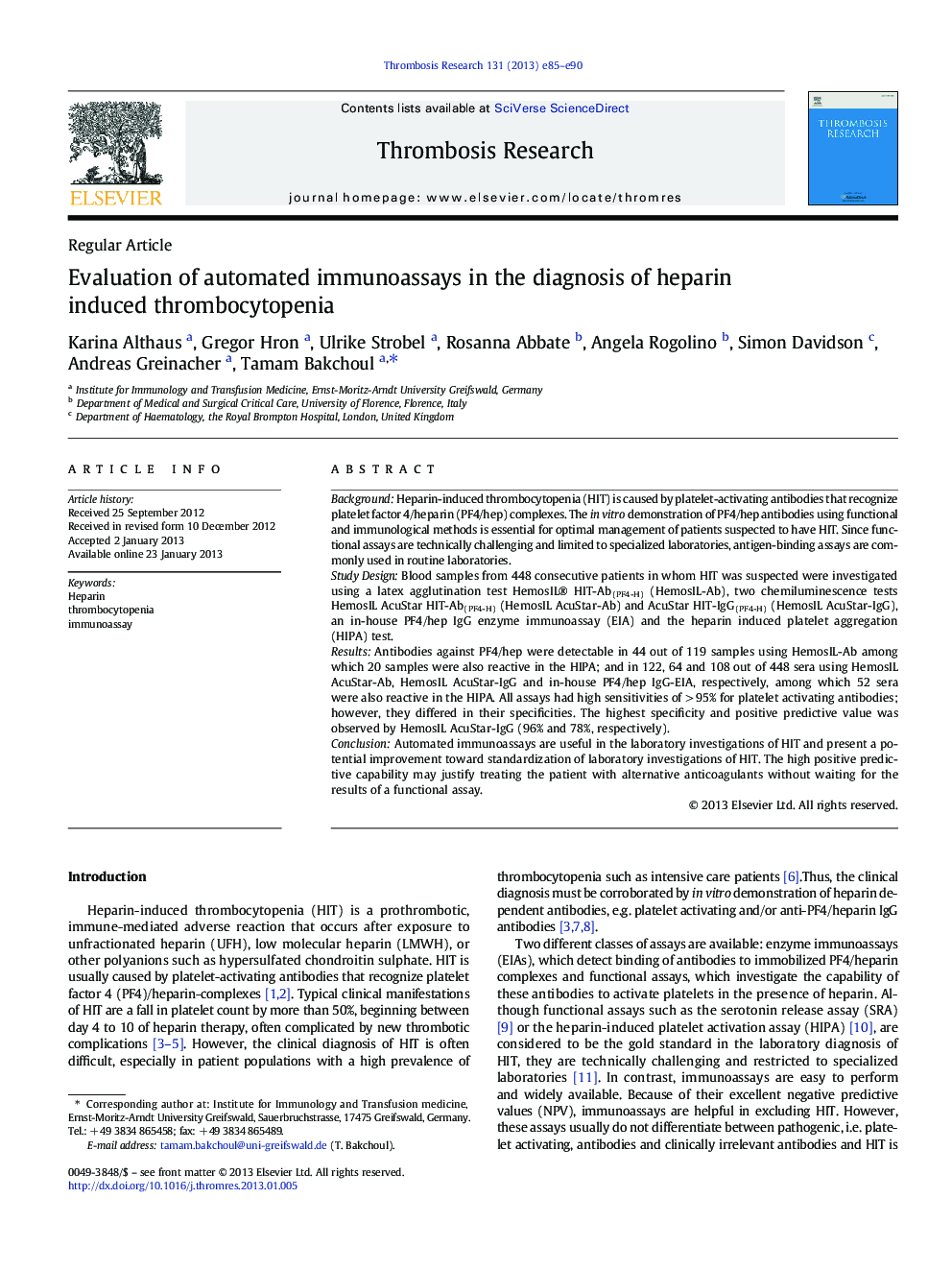| Article ID | Journal | Published Year | Pages | File Type |
|---|---|---|---|---|
| 6002703 | Thrombosis Research | 2013 | 6 Pages |
BackgroundHeparin-induced thrombocytopenia (HIT) is caused by platelet-activating antibodies that recognize platelet factor 4/heparin (PF4/hep) complexes. The in vitro demonstration of PF4/hep antibodies using functional and immunological methods is essential for optimal management of patients suspected to have HIT. Since functional assays are technically challenging and limited to specialized laboratories, antigen-binding assays are commonly used in routine laboratories.Study DesignBlood samples from 448 consecutive patients in whom HIT was suspected were investigated using a latex agglutination test HemosIL® HIT-Ab(PF4-H) (HemosIL-Ab), two chemiluminescence tests HemosIL AcuStar HIT-Ab(PF4-H) (HemosIL AcuStar-Ab) and AcuStar HIT-IgG(PF4-H) (HemosIL AcuStar-IgG), an in-house PF4/hep IgG enzyme immunoassay (EIA) and the heparin induced platelet aggregation (HIPA) test.ResultsAntibodies against PF4/hep were detectable in 44 out of 119 samples using HemosIL-Ab among which 20 samples were also reactive in the HIPA; and in 122, 64 and 108 out of 448 sera using HemosIL AcuStar-Ab, HemosIL AcuStar-IgG and in-house PF4/hep IgG-EIA, respectively, among which 52 sera were also reactive in the HIPA. All assays had high sensitivities of >Â 95% for platelet activating antibodies; however, they differed in their specificities. The highest specificity and positive predictive value was observed by HemosIL AcuStar-IgG (96% and 78%, respectively).ConclusionAutomated immunoassays are useful in the laboratory investigations of HIT and present a potential improvement toward standardization of laboratory investigations of HIT. The high positive predictive capability may justify treating the patient with alternative anticoagulants without waiting for the results of a functional assay.
